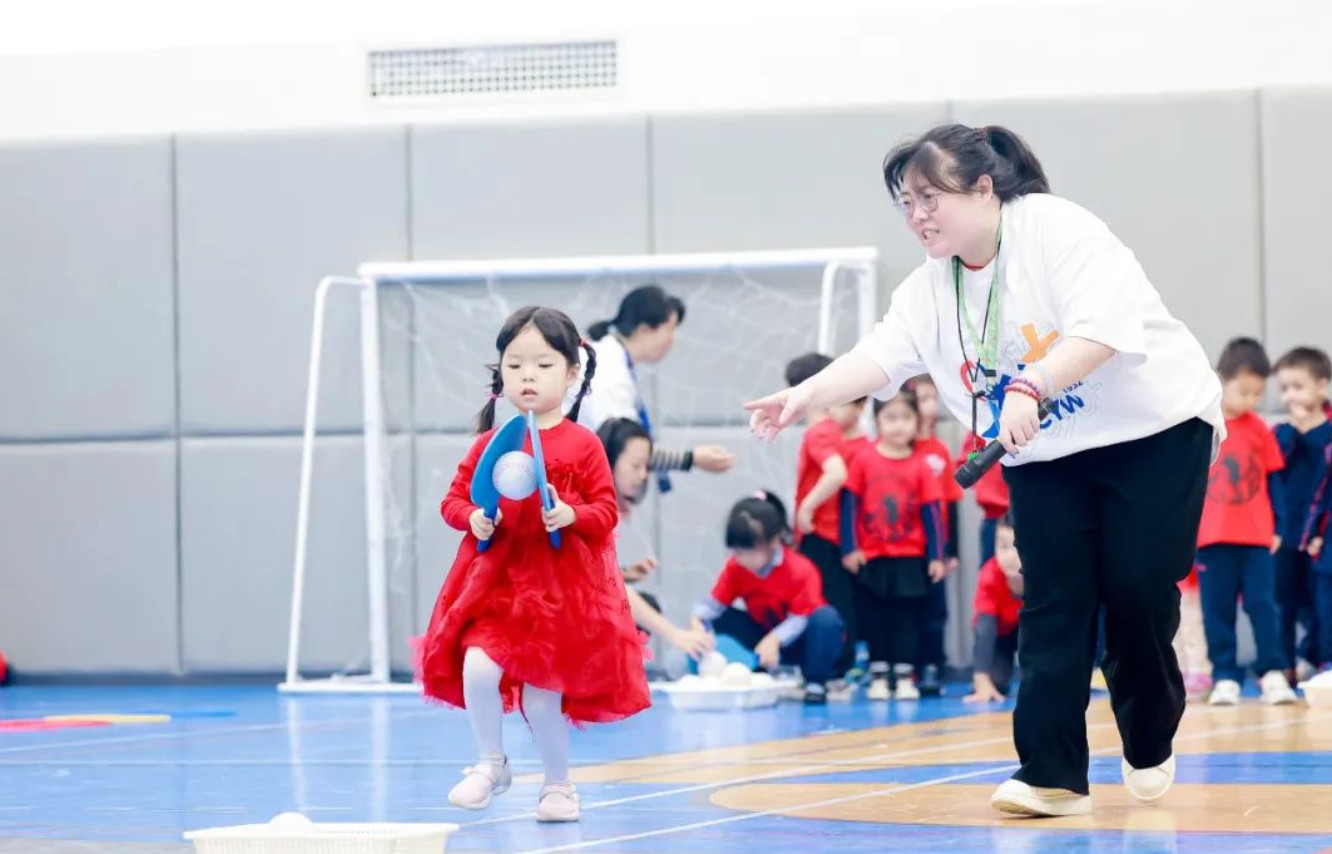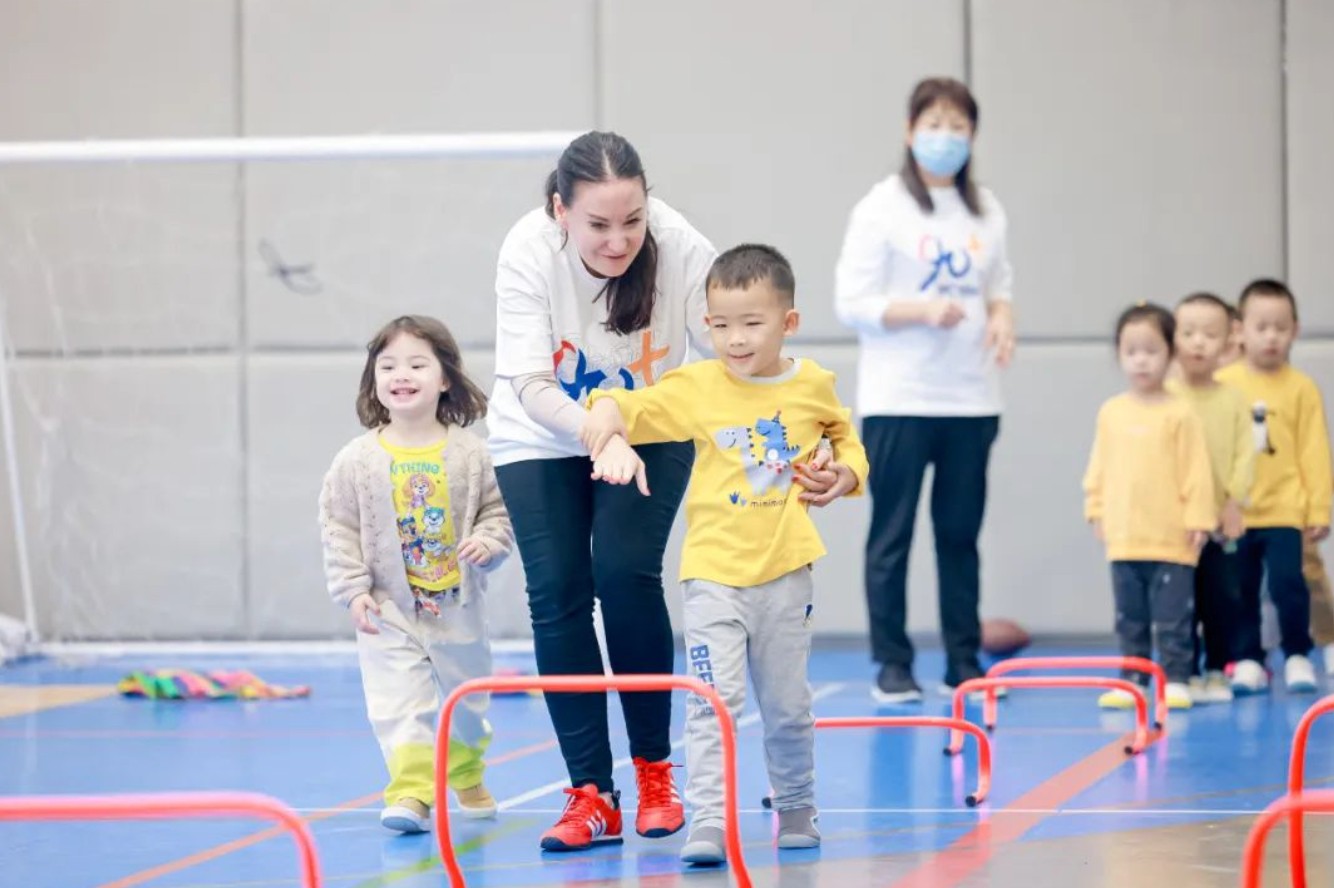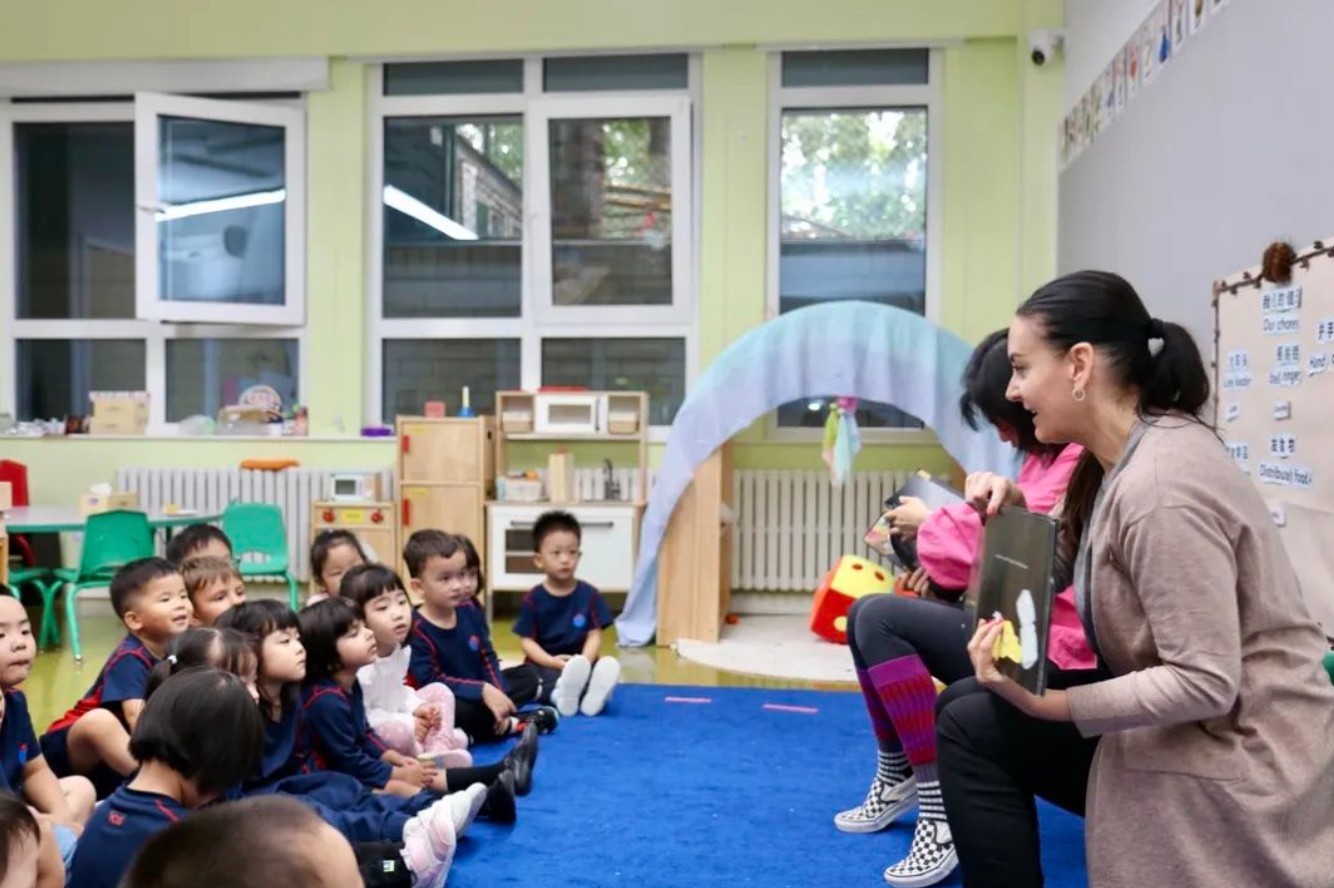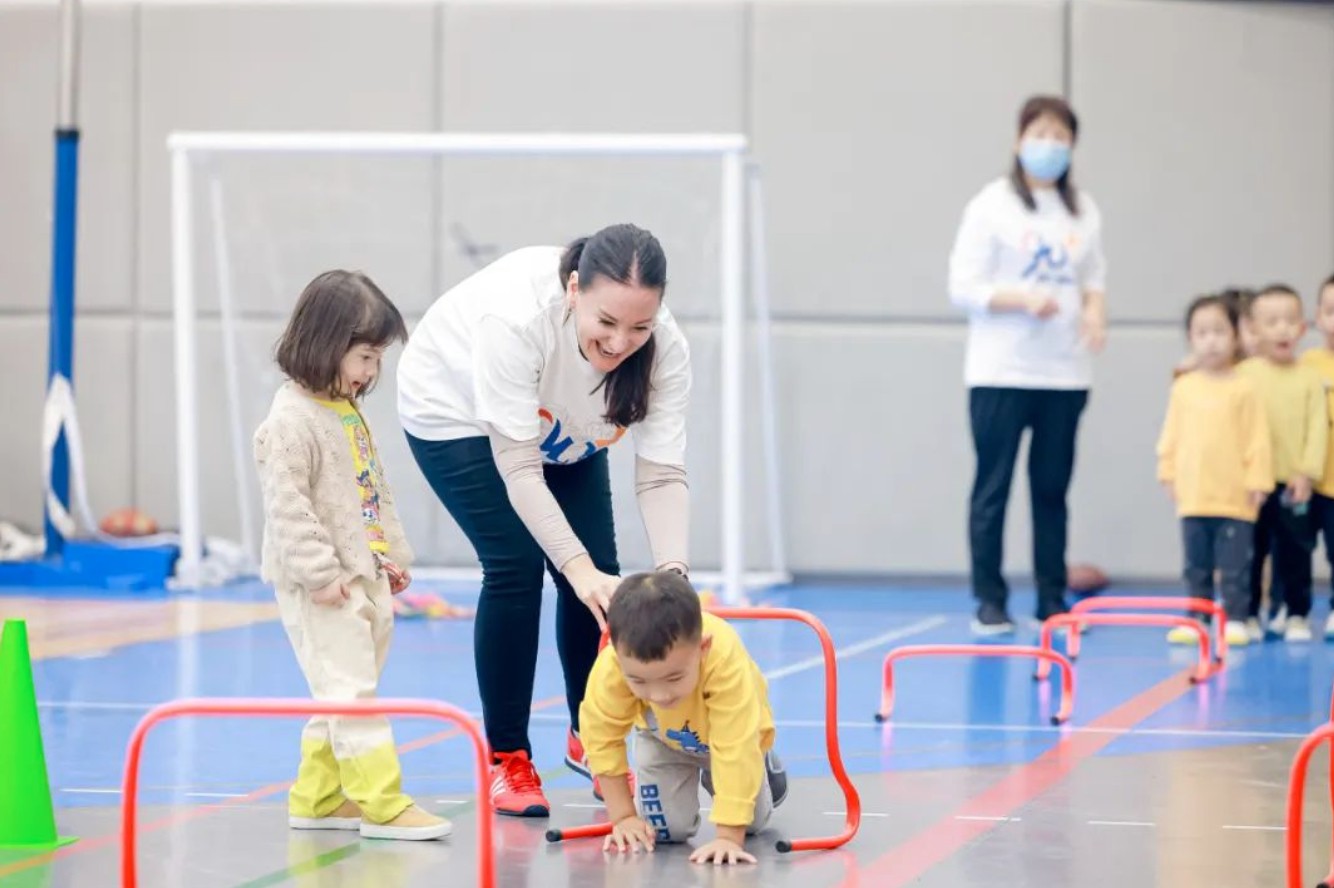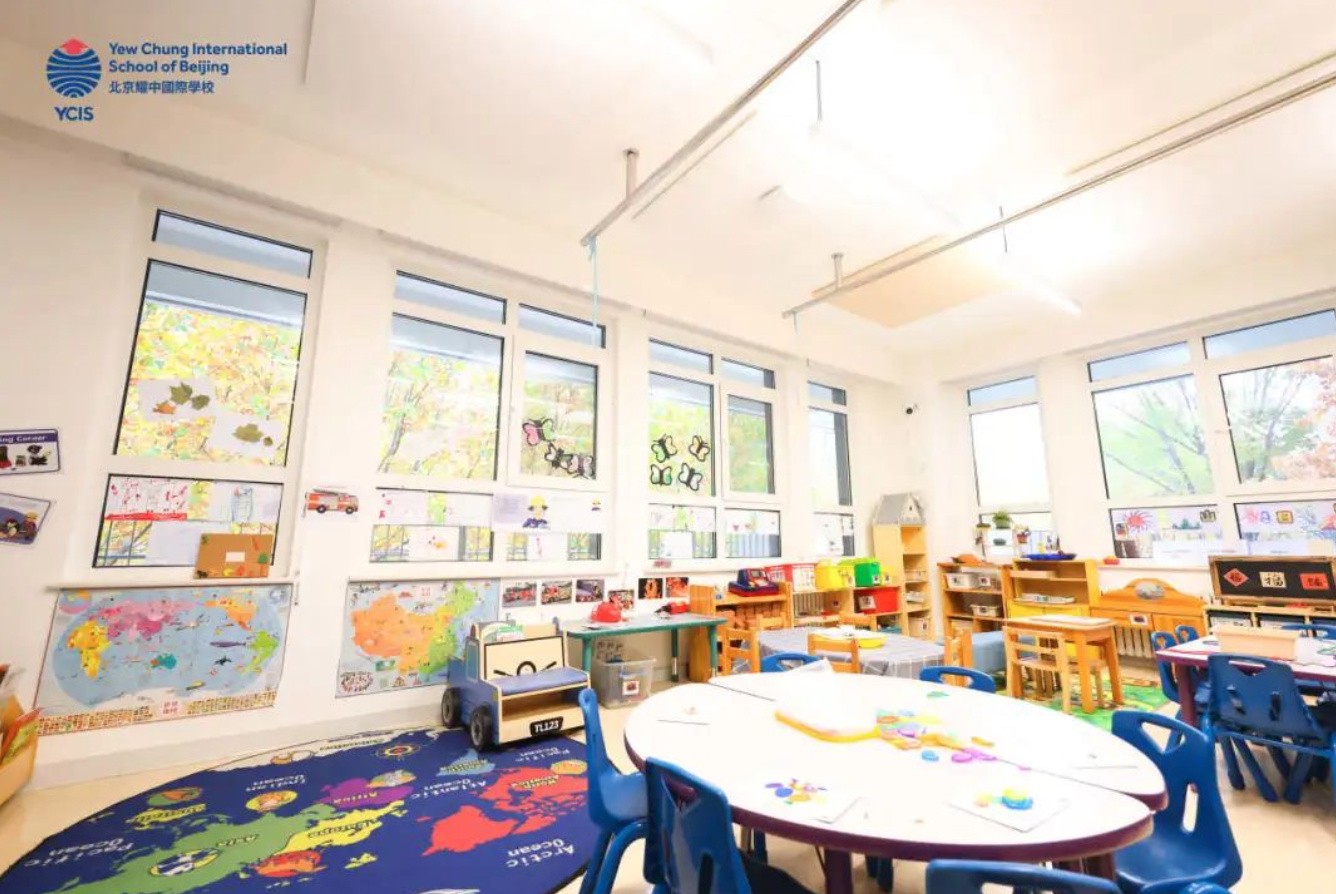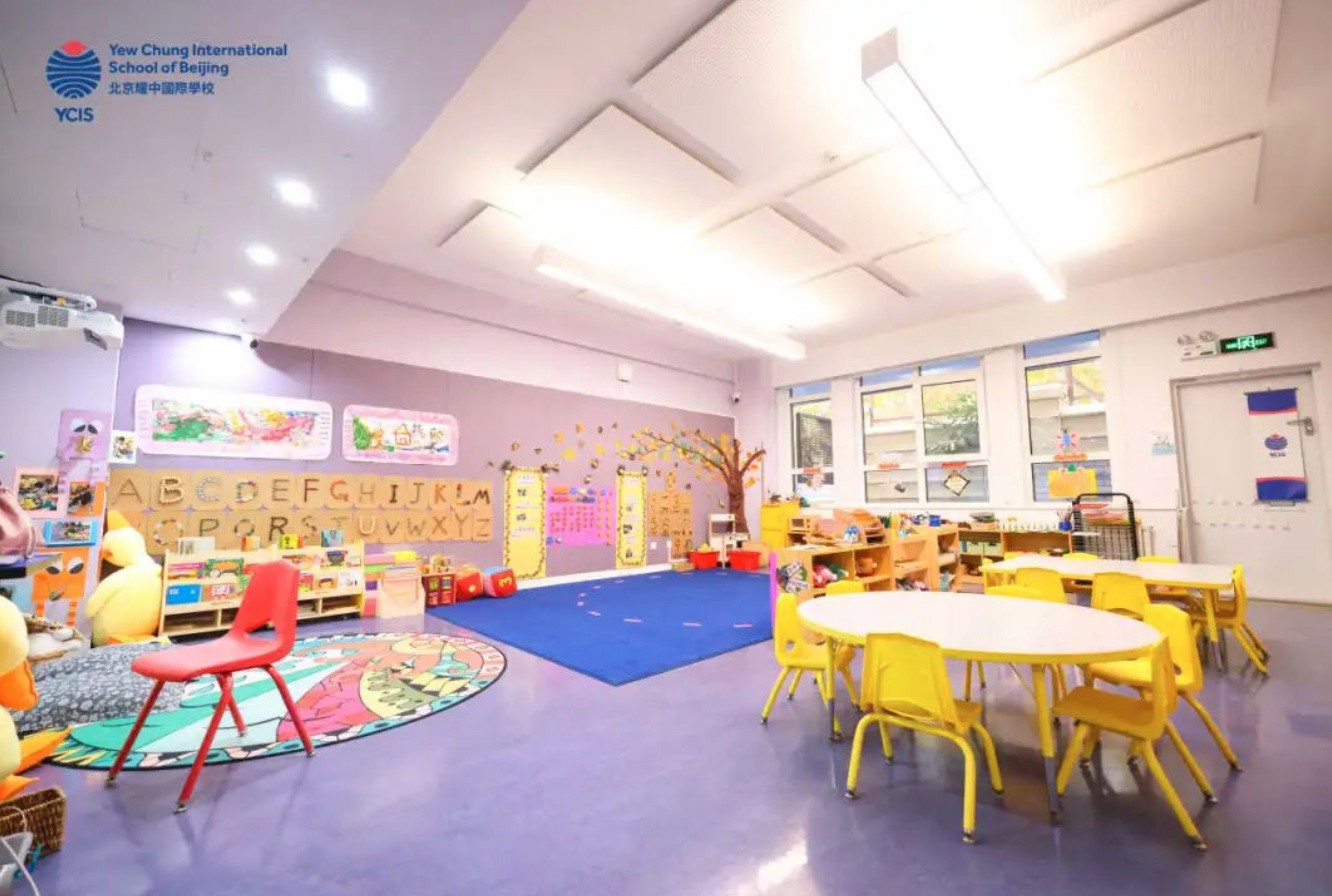Go Back
News
News
Driving the Desire to Learn – Meet our ECE Leadership Team
News
20 Oct, 2023
08 : 00
At YCIS Beijing, we take pride in our incredible teachers who make our school a unique and exceptional place for learning. Our YCIS Beijing Teachers' Series showcases these amazing educators who embody our values of kindness, inclusivity, and academic excellence. In this month’s YCIS Beijing Teachers‘ Series, we had the immense pleasure of speaking with our warm and energetic Early Childhood Education (ECE) Leadership team, Ms Margaret Zhang, Head of ECE and Ms Tammy Adeniyi, ECE Western Team Leader.
Find out here why they both love guiding children in their early learning steps, how they help children reach their full potential and why they believe that child-directed learning makes a big difference in a child’s development.
“The early years of a child's life are crucial for their overall development, and being a part of that journey is truly fulfilling.”
-Margaret Zhang, Head of ECE
“Positive early childhood education experience lays the foundation for all the years that follow.”
-Tammy Adeniyi, ECE Western Team Leader
Why did you choose to teach at YCIS?
Tammy Adeniyi:
“The highly effective and innovative pedagogy found at YCIS aligns with my own values and educational beliefs. I admire the bilingual teaching environment in which Chinese and Western cultural characteristics are understood and respected. I believe honest and direct communication is invaluable when you are coming from different backgrounds and points of view. I have always believed if you truly listen to people, especially those with opposing ideas, you will be able to understand from their perspective. It is important for me to work in a school that inspires children and teachers to respect each other and aspire to learn and achieve more in life.”
How do you establish a trusting relationship with a child?
Margaret Zhang:
“It's very important to be respectful, kind, and empathetic towards a child. We ensure that all our children feel safe and comfortable sharing their thoughts and feelings by providing a supportive and secure environment. Our teachers keep communication open and honest and are available and attentive when our children want to share something. Most importantly, our teachers build a positive and warm relationship with the child by showing genuine interest in their life, having meaningful conversations, and connecting with them on a personal level.”
Tammy Adeniyi:
“Aside from the bond between a parent and child, the bond between a teacher and child is an essential part of a child’s development. One of the most important things a teacher can do is show a child that you care. This involves being genuine in interactions, actively listening, and responding to the needs of the child. Greeting a child warmly and talking in a pleasant, calm voice helps build secure relationships. It is also important to get to know each individual child and respect where they are in their development, understanding, and interests. This will allow us to better reach and motivate each unique child.”
What do you like the most while working and playing with the children at YCIS?
Tammy Adeniyi:
“I like working in an atmosphere where I can empower and help children grow while making a real difference to our community. I find it rewarding to be working at YCIS ECE. Through caring and respectful relationships, I can guide our children to explore their learning experiences and to scaffold on their interests. ”
What are the benefits of a bilingual ECE environment?
Margaret Zhang:
“The benefits for both children and teachers are myriad. Our Chinese and Western co-teachers provide language support and guidance, which helps the children to thrive in a bilingual learning environment. In addition to developing valuable language and communication skills, students in bilingual settings also build cognitive benefits such as improving their problem-solving, multitasking, and creativity. Exposure to different cultures and languages can help develop empathy, cultural awareness and appreciation for diversity, which is important in an increasingly interconnected world. Lastly, children in bilingual ECE environments can become proficient in two languages, which can open doors for future academic and career opportunities.”
How do you motivate the children?
Tammy Adeniyi:
“For me, engaging children to find and peruse their interests in a respectful and positive learning environment is the key to successful early childhood education. Children at this age are curious and excited about the world. It is up to us to help them harness that curiosity and absorb the knowledge.”
In your opinion, what are the benefits of an ‘Emergent Curriculum’?
Margaret Zhang:
“The Emergent curriculum truly places the child at the centre of the learning process, as it gives them ownership of their learning journey. Our children are the heroes of the classroom as they can build their own curriculum. Children are more likely to be motivated and actively involved in their learning when it is relevant to their lives and things they care about. The learner-centred approach supports the holistic development of our children, as it involves their cognitive, social, emotional and physical needs. The children are encouraged to ask questions, explore, and investigate, which helps them think more critically. The Emergent curriculum often involves collaborative projects and group work, promoting communication, cooperation, and teamwork among the children.”
Tammy Adeniyi:
“An Emergent Curriculum is really about unfolding a child’s curiosity, what emerges from a child’s interests. Rather than giving information to children that we think they should know, we believe in our progressive education. It is very valuable to discover what children are curious about, then take that curiosity that is emerging and explore it further in class projects and learning stations. Presently, my K3 Seahorse class are fascinated with the zoo! We are constructing zoo structures, learning about animals and designing their habitats.”
How do you facilitate ‘learning through play’?
Margaret Zhang:
“Our learning spaces are designed to foster play in different areas, such as pretend play, block building, sensory exploration, and art. We offer an abundance of materials that support imaginative play, allowing the children to explore, discover and express their creativity. We encourage them to lead their own activities so they can make choices, find solutions and learn on their own. Our teachers play a crucial role in this self-directed learning as they observe and interact with the children during play, asking open-ended questions to extend the children’s thinking but also providing support and guidance when needed. This scaffolding helps children make real-life connections, enhance their language skills, and deepen their understanding. At YCIS Beijing, everything is about the children and what they need to grow and develop.”
Tammy Adeniyi:
“Learning through play is child-led. It is essentially the most effective way to guide children on ‘how to think’ rather than ‘what to think’. We have our learning communities that activate the children’s imagination and show skills like problem-solving and creativity. All our materials are accessible to the children, which promotes their independence and confidence.”


